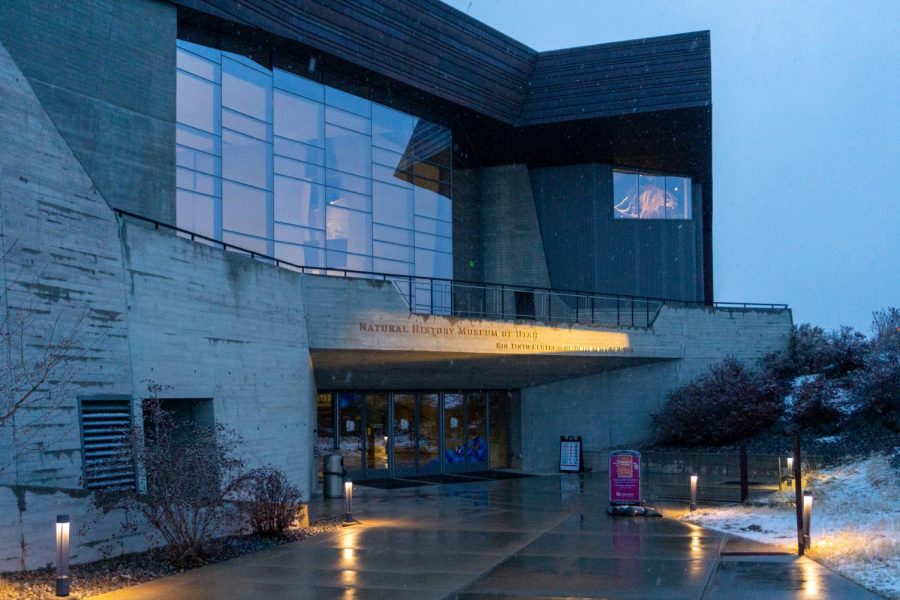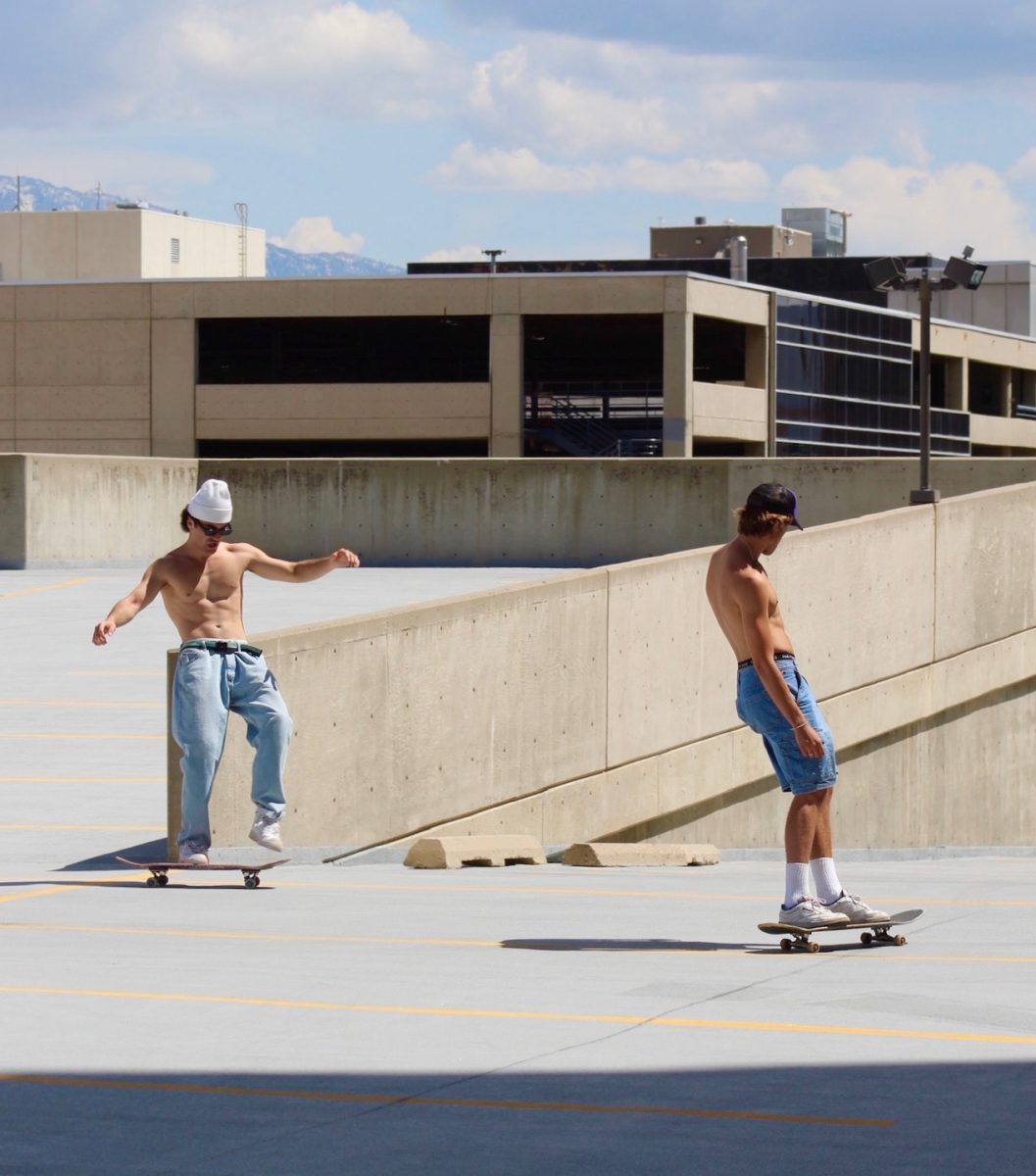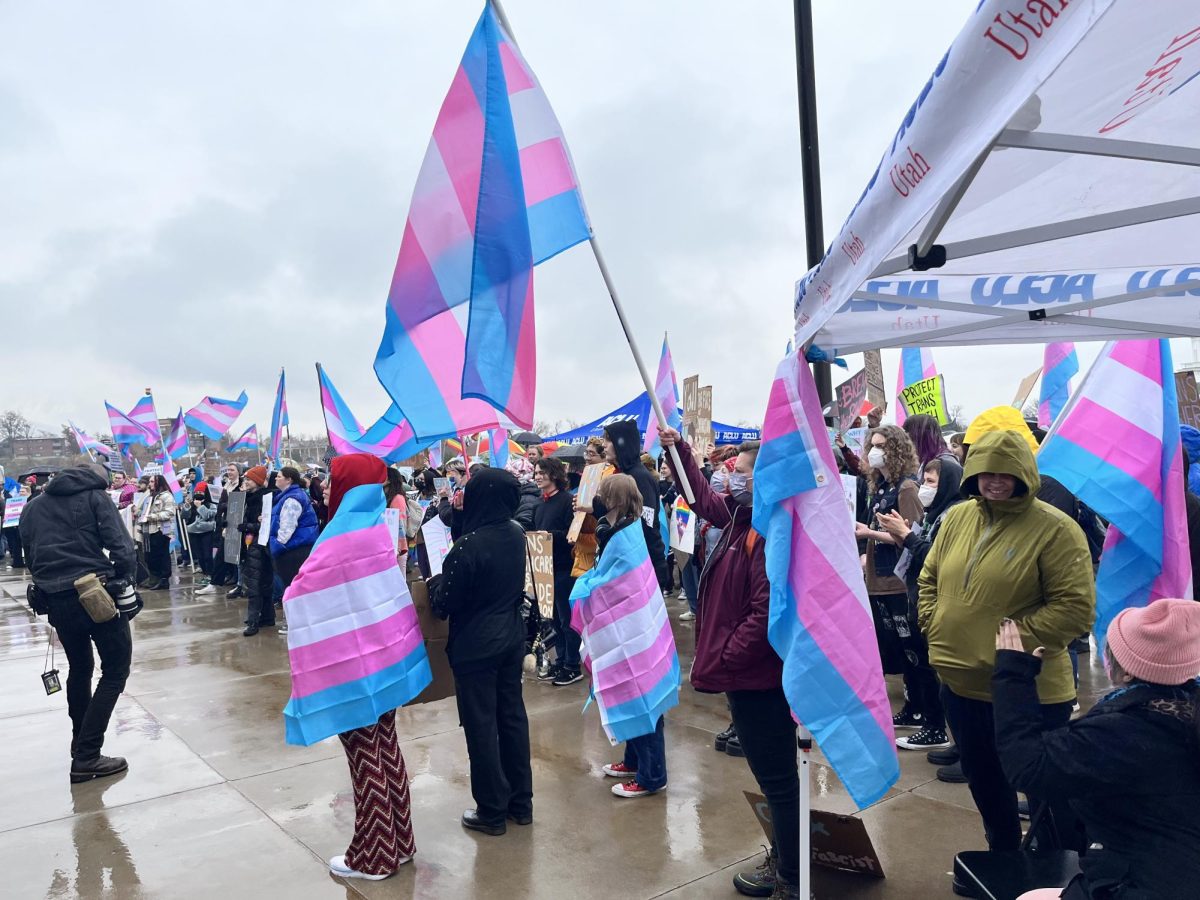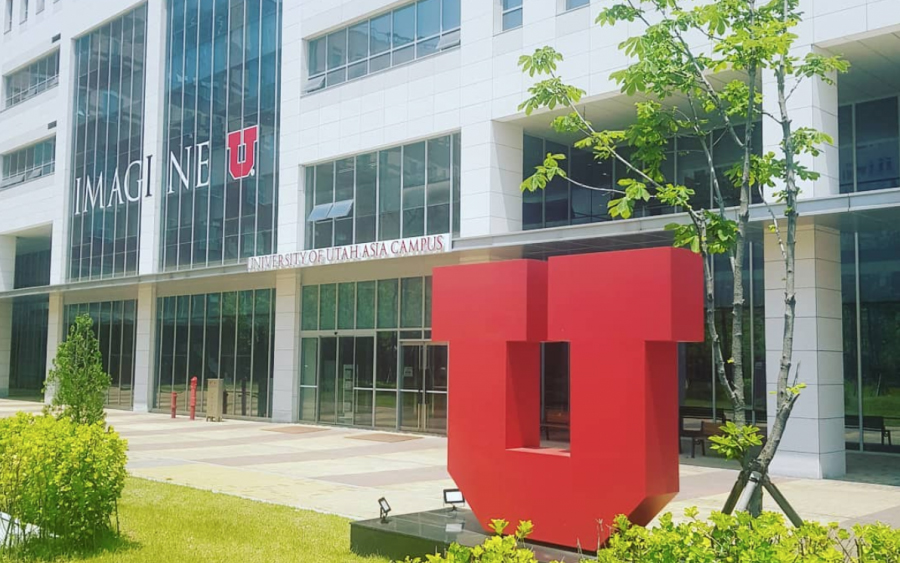Reese: The U Needs to Break Up with Rio Tinto
Outside of the Natural History Museum of Utah on Jan. 22, 2021. (Tom Denton | The Daily Utah Chronicle)
January 26, 2021
In the weeks just prior to President Joe Biden’s inauguration, the Trump administration moved quickly to sell sacred Apache land to Anglo-Australian mining company Rio Tinto. The move was met with protests lead by Apache tribe members in both Arizona and Washington, D.C. Rio Tinto is notorious for its desecration of Australian Aboriginal lands and for being the cause of a civil war in Papua New Guinea. The massive corporation has taken its profits from ventures such as these and invested them into new communities — including our own. This blood money has been used in Utah to fund Real Salt Lake’s Rio Tinto Stadium and the Rio Tinto Center, which houses the Natural History Museum of Utah near Research Park.
This past September, the University of Utah released an Indigenous Land Acknowledgement to recognize and express appreciation to the Indigenous people on whose lands our campus rests. It is disappointing that a university claiming to want to build a better relationship with Indigenous communities would accept money gained from exploiting native peoples and their lands. There is no excuse for that kind of hypocrisy. The U should end its relationship with Rio Tinto and remove the company’s name from campus buildings.
Environmental Damage and Civil War in Bougainville
Through a subsidiary, Rio Tinto used to operate the Panguna copper and gold mines in Bougainville, an autonomous region within Papua New Guinea. Rio Tinto’s mining contaminated the area’s water sources and threatened locals’ health. Theonila Roka Matbob, a member of the Bougainville parliament said, “Our rivers are poisoned with copper, our homes get filled with dust from the tailings mounds, our kids get sick from the pollution.” That kind of neglect is inexcusable in and of itself, but it gets worse. Rio Tinto’s actions led to a civil war that consumed the island from 1988 to 1998. Laborers began protesting the company for underpaying Black workers and providing worse living conditions for them than for other employees. The Papua New Guinea military attacked the striking workers, which prompted Bougainville to seek independence from the island nation. By some estimates, 20,000 people were killed over the course of the conflict.
Looking Ahead to Oak Flat
Rio Tinto has also done plenty of damage closer to home. In the Trump administration’s final hour, it sold 2,400 acres of Apache Land in Arizona, known as Oak Flat, to Rio Tinto on January 15. The San Carlos Apache tribe has been using the site for centuries and considers it sacred land. Rio Tinto wants it for its 1.9 billion tons of untouched copper. After the US Forest Service released a draft of the environmental impact report for the sale, Rio Tinto stated, “We respect the history, beliefs, and culture of our neighbors and local communities. We continue to create relationships with Native American Tribes and work to identify mutually beneficial partnership opportunities.” The company did show that it has met federal standards for protecting the area’s surface land and groundwater. But the US Forest Service report stated that mining projects there had “high potential… to directly, adversely and permanently affect… places and experiences of high spiritual and other value to tribal members,” as well as destroy the homes of local fauna.
The report also showed potential for water contamination which could poison local communities. In an interview for Reuters, Apache tribe member Vanessa Nosie expressed her belief that that is a very real threat.
Rio Tinto’s mining causes much more harm than good for the communities in which they operate. They have left areas like Bougainville corporate legacy of environmental, political and cultural devastation — and now, thanks to a rushed transaction by the Trump administration just days before he left office, Oak Flat has the potential to join Bougainville’s ranks. However, a judge has postponed the land transfer for 55 days as a result of a lawsuit filed by the San Carlos Apache Tribe. Rep. Raúl Grijalva and Sen. Bernie Sanders will also introduce federal legislation to void the land exchange as well.
But even with the help of these legal efforts, Oak Flat’s future is far from secure. There still is a long battle left to stop Rio Tinto from one day exploiting the region.
The destruction Rio Tinto inflicted on Bougainville just over 20 years ago is evidence enough that the company does not adhere to any ethical or moral guidelines. They will cause similar pain to the Indigenous people of Oak Flat — and as such, the U’s association with the mining company is in direct conflict with its commitment to Indigenous communities. In order to uphold their “commitment to serving and partnering with Native Nations,” the U must end its relationship with Rio Tinto and remove the corporation’s filthy name from our campus. No amount of educational philanthropy can make up for the mining company’s moral bankruptcy.














Sonia S. • Jan 31, 2021 at 8:11 pm
Yes — I agree. As a western Salt Lake County resident, some of the soil out here has been contaminated by the giant copper mine.
Profiteers claim this land can be developed with a replacement of 18″ of topsoil. Developers are now placing high density housing on the Olympia Hills Development -despite real concerns of overpopulation-and not really knowing if the formerly contaminated soil will be safe for human habitation. I fought alongside the residents of the area who said no to their mega-city plans. We got them to reduce the size by about 3000 units, but over 6000 remain in the plan. Daybreak has similar concerns, as I was told the ‘clear lake’ is actually on the land too contaminated for homes. Yet the Utah real estate laws require home buyers to exert ‘due diligence’ to determine whether or not to buy a home or property. So there seems to be no effort to inform the populace of potential pollution problems or to do adequate environmental impact studies.
I have asked, has the U turned a blind eye to pollution when the mine operation offers us funding for buildings, scholarships and other generous perks?
I am highly concerned about this manipulation trading Rio Tinto profits for public health, here or elsewhere. As you describe, it is a huge threat to the Indigenous people of Oak Flat. Names on buildings carry weight — a good name or a bad name. Thank you for focusing on this area of social responsibility, I hope it begins a real dialog.
David Pedersen • Jan 31, 2021 at 3:38 am
After Rio Tinto’s appalling destruction of the sacred caves in Western Australia’s Pilbara region, there is no reason why they should still be in business, let alone in Utah (one of the world’s most polluted states). Their activities at Kennecott have an appalling track record of environmental sacrifice in terms of air and water (and perhaps soil) contamination, and unless they are dealt with soon then the notorious pollution along the Wasatch Front will only worsen.
Governor Cox and the rest of the Utah state government need to step up and get this dangerous and ecocidal corporation out of Utah once and for all. Utahns deserve nothing less – especially when their lives are literally at stake.
Dan H. • Jan 27, 2021 at 7:57 pm
We don’t have to look far to see the impact. In our own Utah backyard, we have a mining pit that can be seen from space.
Don Mitchell • Jan 27, 2021 at 5:18 pm
In case any readers are wondering whether Mr. Reese is exaggerating the destruction Rio Tinto visited upon Bougainville — he’s not. I did anthropological fieldwork on that island, about 20 miles from the mine, during the exploration/contruction phase, then after it was in production, and then again after the fighting died down years later.
It’s almost impossible to overstate the environmental damage the mine did. And the social damage was very great, also.
John Ayers • Jan 27, 2021 at 4:41 pm
Great article, Reese.
I guess this was just draining the last few trickles from the swamp. All hail corporate America!
Keep up the good work!